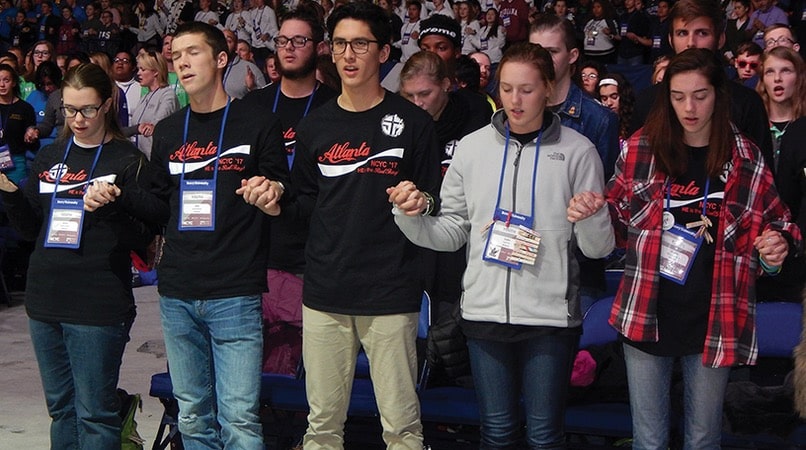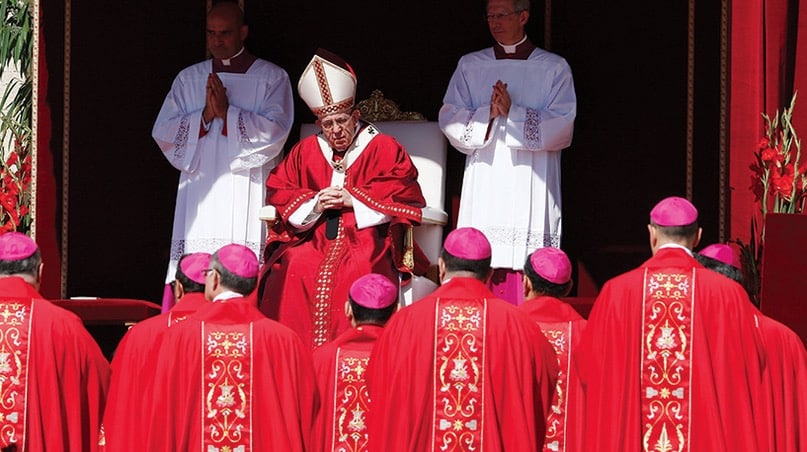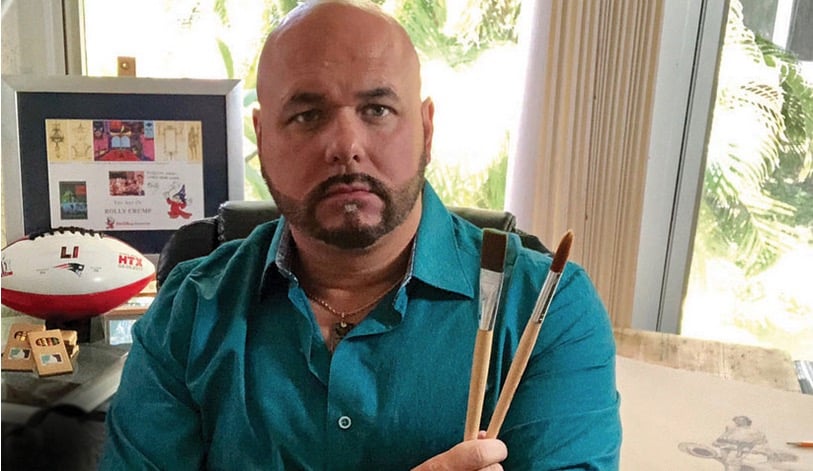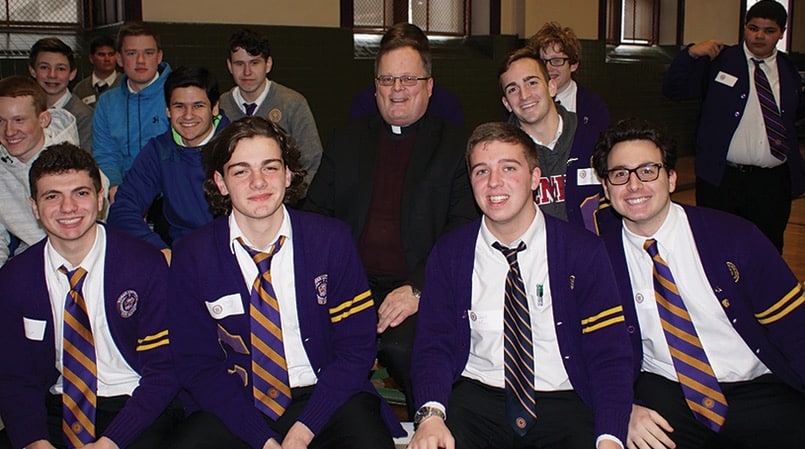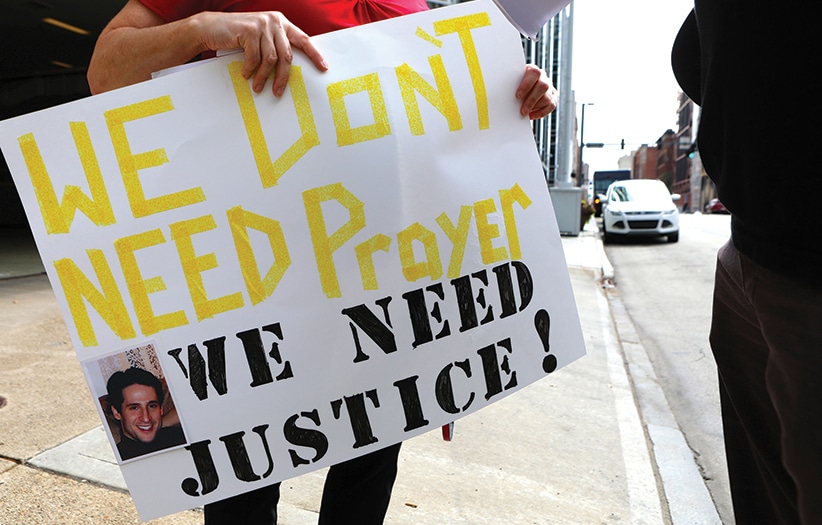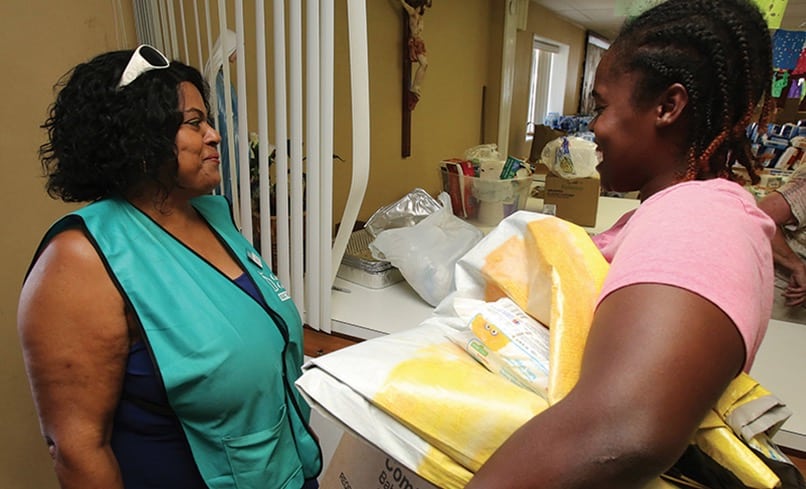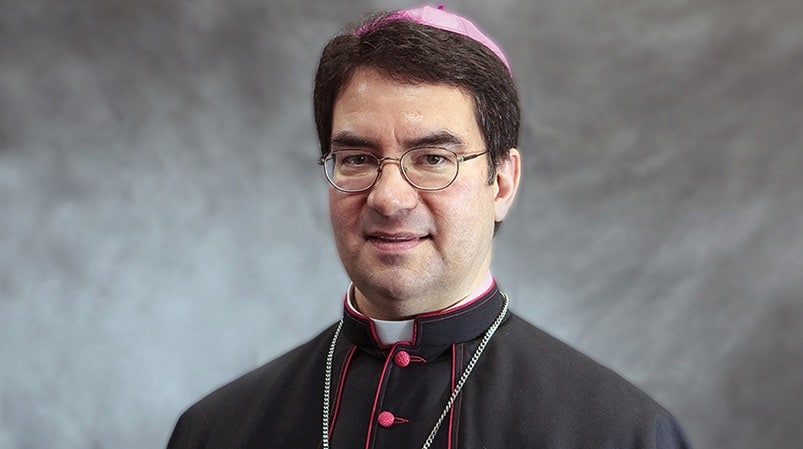“An army of youth flying the standards of truth, / We’re fighting for Christ, the Lord. / Heads lifted high, Catholic Action our cry, / And the cross our only sword.”
More than a few Catholics of a certain age will recognize those stirring words as the opening of a song they sang in Catholic schools more years ago than they care to remember. Its name is “For Christ the King” — otherwise known as “An Army of Youth” — and it could tell us something useful about reaching and motivating kids today.
Church leaders and Catholic parents alike often express alarm at the evidence that large numbers of today’s young people are walking away from the Faith. An assembly of the Synod of Bishops in Rome in October will focus attention on this problem and what can be done about it.
“For Christ the King” isn’t the total solution, but it illustrates an approach that apparently worked at one time and, judiciously adapted to current circumstances, might work again. In a nutshell, it comes down to presenting kids with a noble ideal and challenging them to go for it.
Father Lord
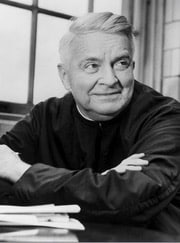
The song was the work of Jesuit Father Daniel A. Lord, an activist from the Midwest who, along with writing music, published some 90 books and 300 pamphlets. He also composed and directed a string of stage productions featuring drama and music that he wrote and frequently performed on the piano — all in the service of promoting religious faith and sound values.
Born in Chicago in 1888, he joined the Jesuits as a young man and was ordained in 1923. A 2005 article in the Jesuit magazine, “America,” published to mark the 50th anniversary of his death, summed up his achievement like this:
“Lord’s dramatic and literary works testified to the enduring appeal of themes of heroism, virtue and faith and their ability to speak to the young of every generation. During his lifetime he energized and engaged hundreds of thousands of young people by employing music, drama, narrative and ritual as means to spiritual growth.”
In 1927, he served as a technical consultant for producer Cecil B. DeMille’s famous silent film depicting the life of Christ, “King of Kings.” A few years later he wrote a draft of a production code for motion pictures that, adopted with only minor changes, set the moral standards for Hollywood movies well into the 1950s.
But movies were only part of his work. In 1926, he’d been named national director of the Jesuit-sponsored Sodality of the Blessed Virgin. The organization, headquartered in St. Louis, was a loose federation of sodalities — groups for spiritual formation and devotion — that then were common at Jesuit and other Catholic schools. In decline when Father Lord took it over, the sodality movement reversed course under his vigorous leadership, eventually reaching a peak membership of 2 million.
Writing at the rate of 20,000 words a month, he cranked out a steady stream of books, pamphlets and articles. Along with teaching the Faith and fostering devotion, he argued for economic and social justice and opposed racial discrimination and anti-Semitism. By the time death ended his 35-year ministry, his published works had sold more than 25 million copies.
The priest also edited the national Sodality magazine, “The Queen’s Work.” It was there in 1932 that “For Christ the King” made its appearance.
“On earth’s battlefield / Never a vantage we’ll yield / As dauntlessly on we swing. / Comrades true, dare and do, / ‘Neath the Queen’s white and blue, / For our flag, for our faith, / For Christ the King.”
Although its military imagery might not click with kids today, back then the song’s jaunty march tune and lofty sentiments about duty, honor and devotion made it a hit with its intended youth audience. It was repeatedly sung at sodality convocations and gatherings of other groups, such as the Catholic Students Mission Crusade.
Youth today
All this bears little resemblance to the preparations for the impending bishops’ synod on youth that will be held at the Vatican in the fall. Consulting young people to find out what they think about the Church has been a large part of it, and the results to date have been somewhat problematic.
“Young Catholics tell Pope Francis the Church is indifferent and judgmental” — so read the headline on a Washington Post story about a gathering of 300 young people, selected by bishops’ conferences around the world, who came to Rome in March to work up a 16-page report that they presented to the pope as their contribution to the fall synod.
Much of the document consists of generalizations like urging the Church to be “authentic.” At other points it seems to be saying something for the sake of saying something (“we respond to well-organized, larger-scale events, but also hold that not all events need to be of this scale”). Its calls for the Church to give a larger role to women and to make wise use of social media are hardly new.
The report makes up part of the working document for the synod. Perhaps it will be of help to the bishops then. But that only points to an important fact that the pre-synod consultation seems to have overlooked: If the teaching Church needs to hear what kids have to say, kids have a need to hear from the teaching Church.
‘Living faith’
This was something Father Lord, with his showmanship and now-dated media savvy, seems to have understood very well. As the “America” article put it, he “championed a form of public Catholicism meant to compel youth to take their faith out into the world. … Lord’s ability to engage and energize youth was unmatched in his time. He made the truth attractive, spoke frankly about the Church’s teachings, and imparted his message with youthful enthusiasm.”
When told he had the cancer that would ultimately kill him, Father Lord typically turned his approaching death into a subject for his writing. He died on Jan. 15, 1955. His autobiography “Played by Ear” (Loyola University Press) was published the following year.
But his legacy wasn’t his books and pamphlets and pageants and songs — it was a generation and more of Catholics influenced by his vision of living faith.
“Christ lifts his hands; / The King commands; / His challenge, ‘Come and follow me.’ / From every side, / With eager stride, / We form in the lines of victory. / Let foemen lurk, / And laggards shirk, / We throw our fortunes with the Lord, / Mary’s son, / Till the world is won, / We have pledged you our loyal word.”

